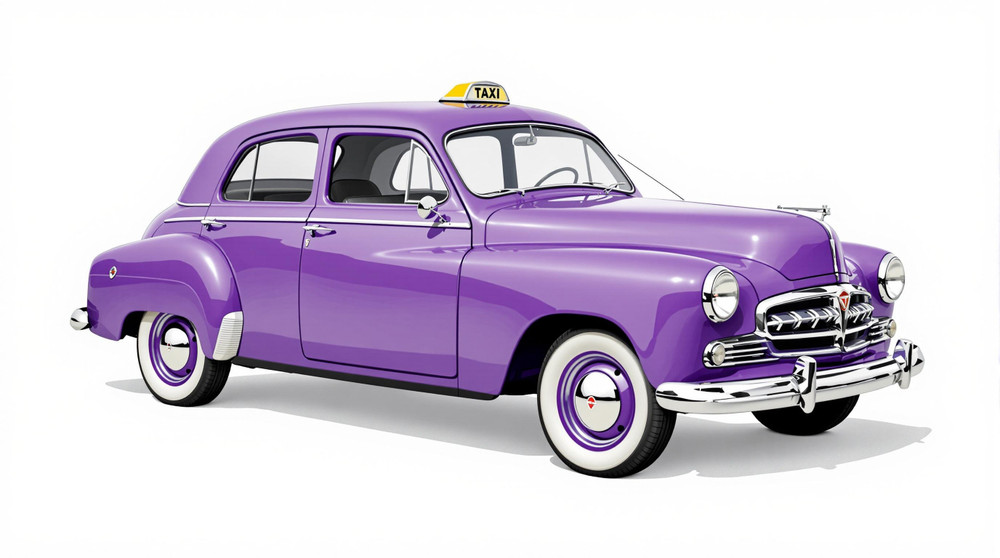Image of 1947 Studebaker Taxi, Note: These illustrations use artistic license and may differ from actual historical models.
Performance Metrics
Fundamental Metrics
Emotional Appeal
MMP Rating
| Engine Specifications | |
|---|---|
| Engine Options: | Inline 6 |
| Displacement Range: | 170 cubic inches |
| Horsepower Range: | Estimated 80-90 HP |
| Torque: | Estimated 130-140 lb-ft |
| Compression Ratio: | 6.5:1 |
| Ignition System: | Distributor and coil |
| Cooling System: | Liquid-cooled |
| Performance Specifications | |
| 0-60 Time: | Estimated 20-25 seconds |
| 1/4 Mile Time: | Not available |
| Top Speed: | 75 mph |
| Transmission and Drive | |
| Drive Type: | Rear-wheel drive |
| Transmission Type: | 3-speed manual |
| Fuel and Efficiency | |
| Fuel System Type: | Carburetor |
| MPG: | Estimated 15-20 mpg |
| Dimensions and Brakes | |
| Brakes: | Drum brakes |
| Wheelbase: | 112 inches |
| Weight: | Estimated 2800-3000 lbs |
Note: Specifications for classic cars are given to the best of our ability, considering the limited and variant data available.
1947 Studebaker Taxi: A Journey Back to Post-War Americana
The 1947 Studebaker Taxi stands as a testament to the resilience and innovation of post-war America. Born from the industrious spirit of the Studebaker Corporation, a company with roots reaching back to the days of horse-drawn wagons, this vehicle emerged as a symbol of newfound optimism. As cities grew and the need for reliable transportation became paramount, the Studebaker Taxi carved its niche in urban landscapes across the nation. Notably, this model was part of Studebaker's bold post-war strategy, which set it apart from competitors and cemented its place in automotive history.
Design and Innovation: The Art of Practicality
The 1947 Studebaker Taxi was designed with practicality in mind, yet it did not skimp on style. Its exterior boasted clean lines and a sturdy build, exuding a sense of reliability essential for daily commuters. The interior was a realm of functionality and comfort, with durable materials that could withstand the rigors of constant use. Technologically, it featured advancements such as an improved suspension system, which was quite advanced for its time. While color options were typically limited to utilitarian hues, the most popular choices were those that maintained a professional appearance. Among the body styles available, the four-door sedan was iconic for its spaciousness and ease of passenger entry and exit.
Historical Significance: Paving the Way for Modern Taxis
The 1947 Studebaker Taxi wasn't just another car; it played a pivotal role in shaping the future of public transportation. Its design directly influenced the development of subsequent taxi models, setting standards for durability and functionality that are still relevant today. The Studebaker Taxi's legacy is evident in how it addressed the needs of both drivers and passengers, prioritizing efficiency without sacrificing comfort.
Performance and Handling: Navigating Post-War Streets
Performance-wise, the 1947 Studebaker Taxi was built to endure rather than to excite. It wasn't about top speeds or rapid acceleration but about providing steady and reliable service day in and day out. Handling was tuned for urban environments—capable of absorbing bumps and navigating tight corners with grace. Drivers often praised the vehicle's engine hum as reassuringly steady, complementing an overall driving experience that prioritized practicality over pomp.
Ownership Experience: Reliability Meets Functionality
As a daily driver or a fleet vehicle for taxi services, the 1947 Studebaker Taxi offered an ownership experience centered around reliability. Maintenance was straightforward due to its no-frills mechanical design, making repairs manageable for the average owner or local mechanic. The car's robust construction meant that it could handle heavy usage with fewer breakdowns—a critical factor for taxi operators who depended on their vehicles for their livelihood.
Fun Facts: Trivia That Drives Interest
Despite its workaday nature, there are intriguing tidbits about the 1947 Studebaker Taxi. For instance, while not known for breaking speed records, it held its own in endurance tests—a testament to its solid construction. Although not commonly associated with celebrities or high-profile events, its presence was ubiquitous in everyday life, often seen in films depicting the era. Criticisms were few but typically revolved around its conservative styling compared to more flamboyant contemporaries.
Collector's Information: Assessing Value and Rarity
Today, finding a 1947 Studebaker Taxi can be quite a treasure hunt for collectors. With production numbers not as high as some mass-produced models of its time, surviving examples are relatively scarce. As far as value is concerned, well-preserved or expertly restored models can fetch significant sums from enthusiasts who value historical authenticity and uniqueness. While exact figures are challenging to pinpoint without auction records at hand, one could estimate values ranging from moderate sums for models in fair condition to much higher amounts for pristine examples.
Conclusion: Celebrating an Unsung Hero
The 1947 Studebaker Taxi may not have been designed as a showstopper or speed demon but it played an indispensable role in America's transportation history. Its contribution to post-war society and influence on future automotive design cannot be overstated. As we reflect on this classic workhorse's journey through time, we're reminded that sometimes true significance lies not in flashiness but in steadfast service—a quality that the Studebaker Taxi delivered in spades.
1947 Studebaker Taxi Catalog of Parts
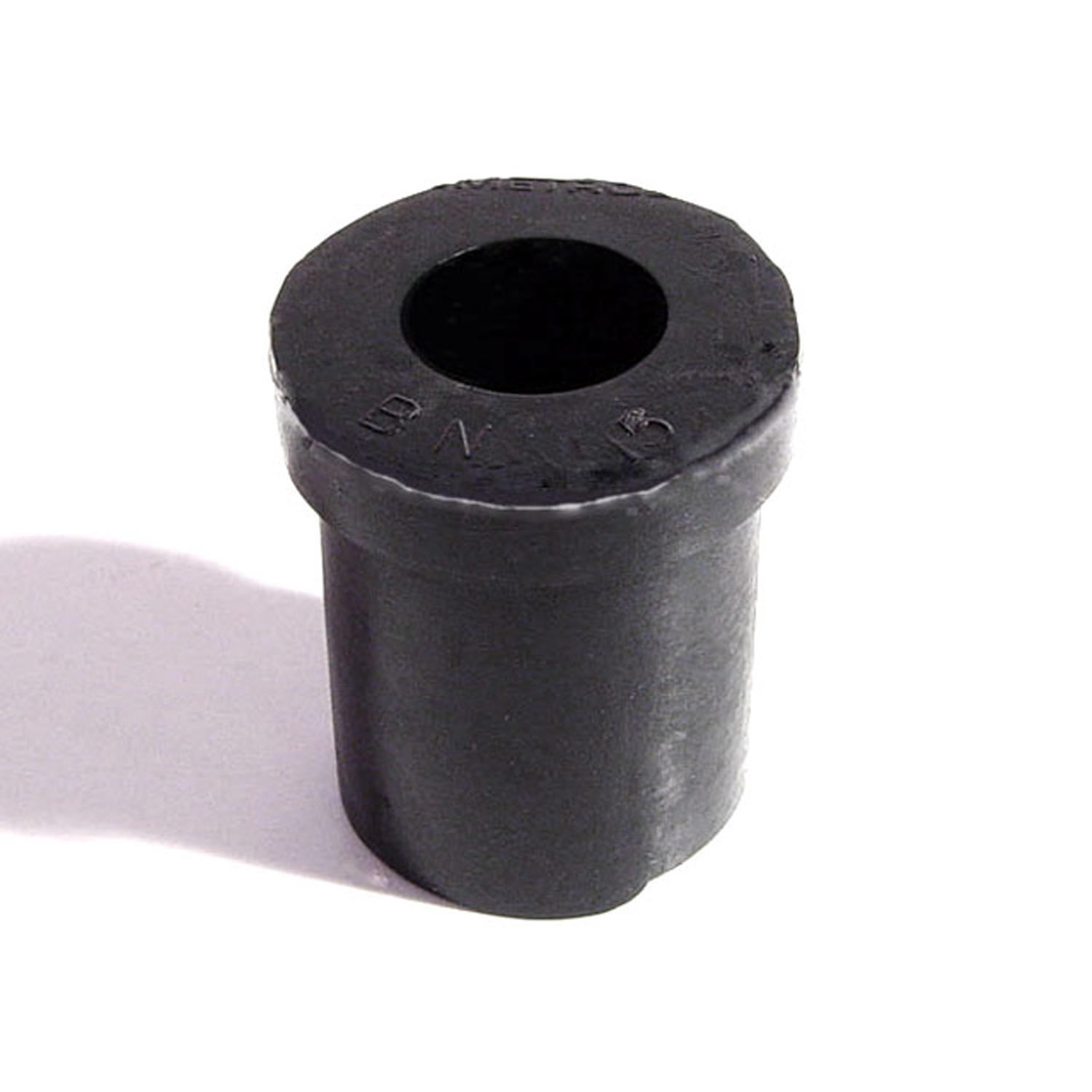 1947 Studebaker Taxi Spring and Shackle Bushing. 7/8" bottom O.D-BN 15Spring and Shackle Bushing. 7/8" bottom O.D. X 1-1/8" high, with 1/2" I.D. Each
1947 Studebaker Taxi Spring and Shackle Bushing. 7/8" bottom O.D-BN 15Spring and Shackle Bushing. 7/8" bottom O.D. X 1-1/8" high, with 1/2" I.D. Each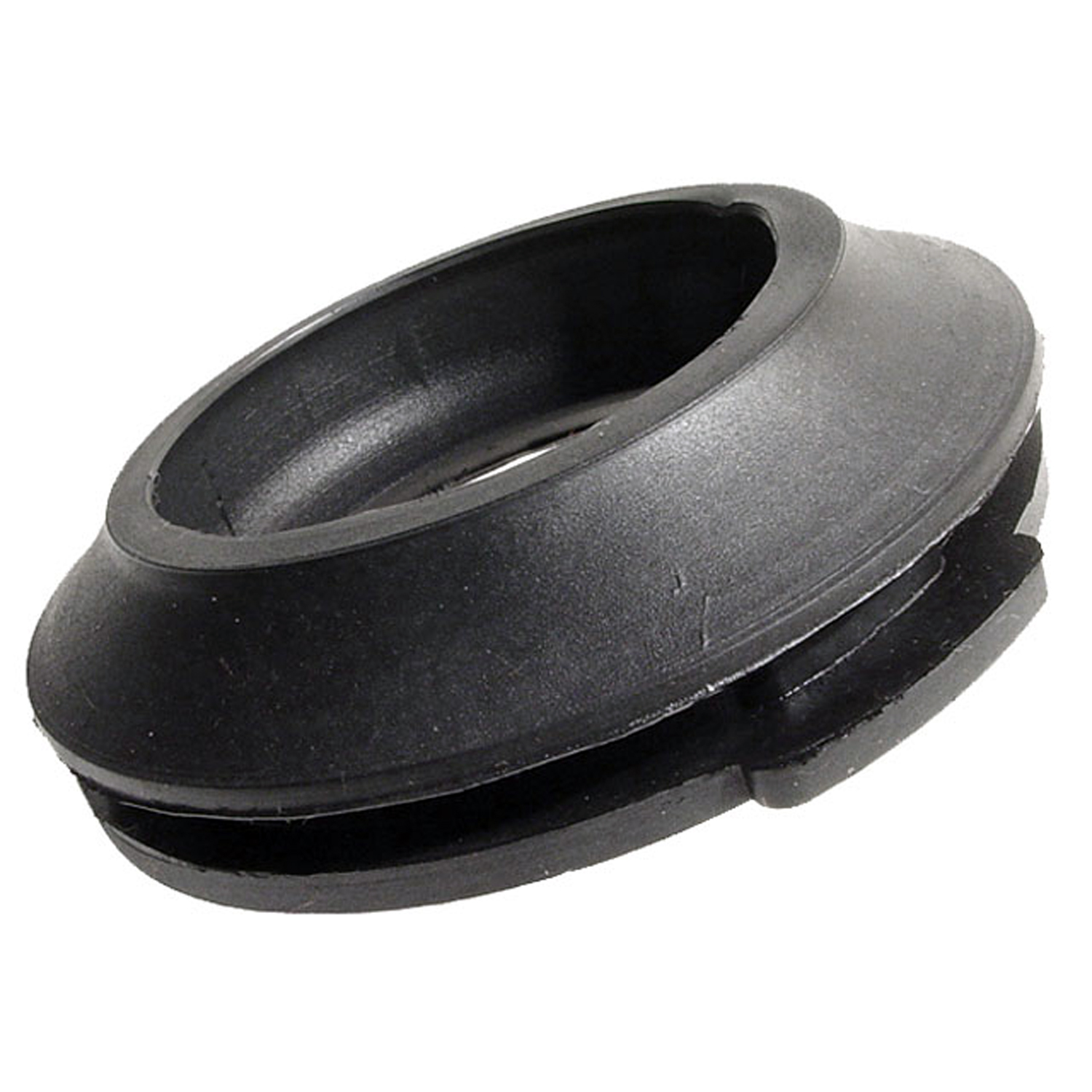 1947 Studebaker Taxi Gas Filler Grommet. Perfect reproduction. Top 2-1/16" I.D-GF 45Gas Filler Grommet. Perfect reproduction. Top 2-1/16" I.D., 3-7/16" O.D. Each
1947 Studebaker Taxi Gas Filler Grommet. Perfect reproduction. Top 2-1/16" I.D-GF 45Gas Filler Grommet. Perfect reproduction. Top 2-1/16" I.D., 3-7/16" O.D. Each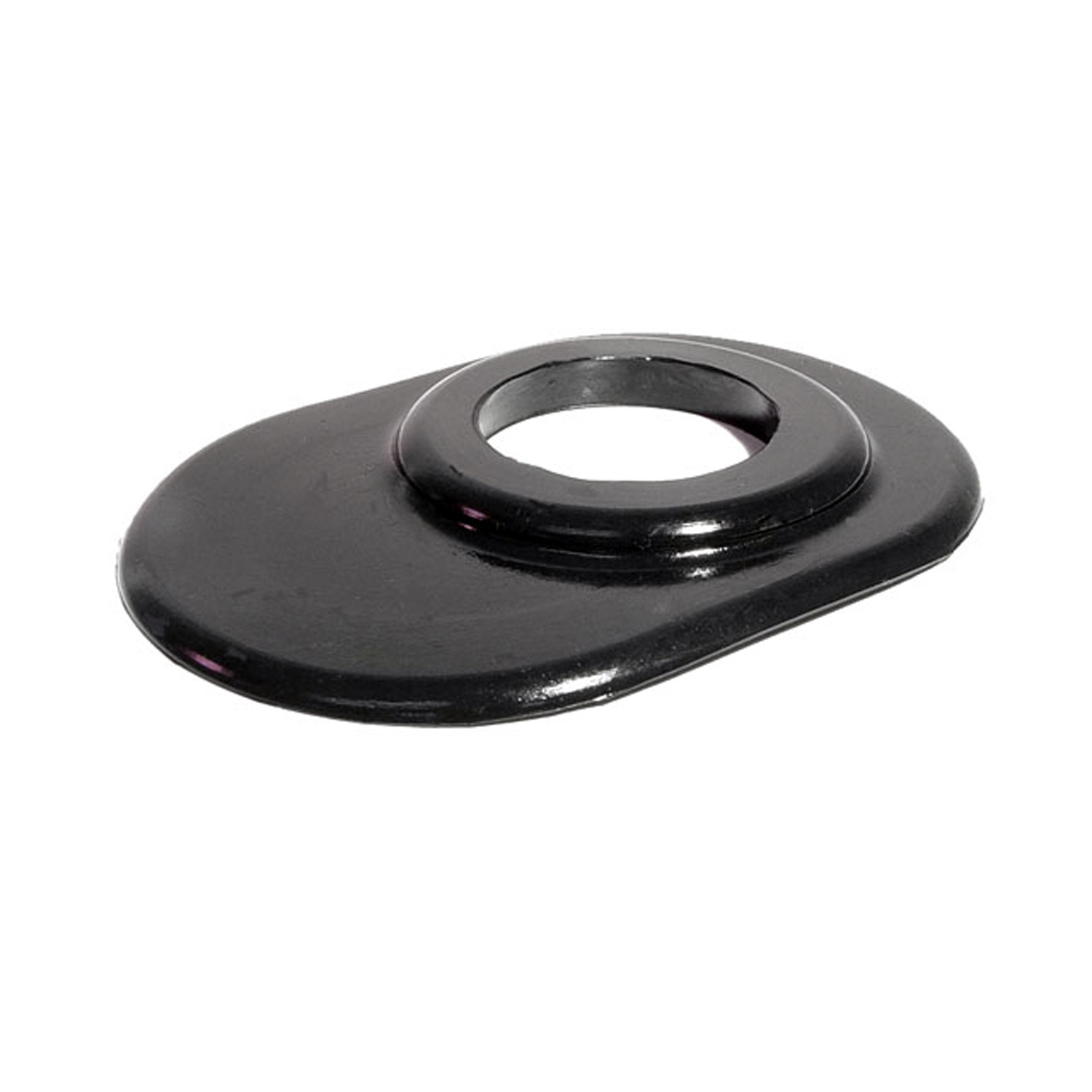 1947 Studebaker Taxi Steering Column Grommet. For 3-speed models. Each-SC 24-ASteering Column Grommet. For 3-speed models. Each
1947 Studebaker Taxi Steering Column Grommet. For 3-speed models. Each-SC 24-ASteering Column Grommet. For 3-speed models. Each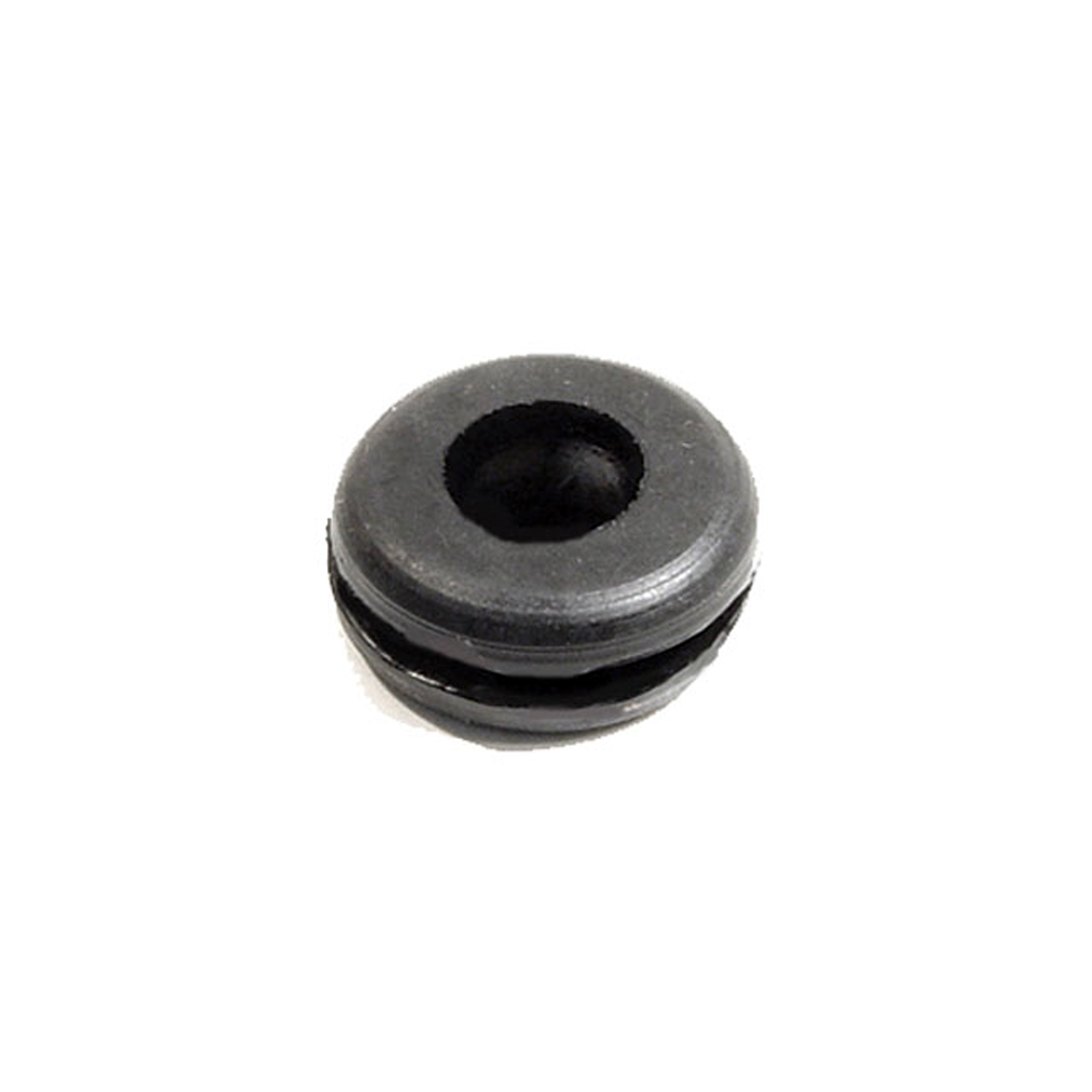 1947 Studebaker Taxi Headlight & Tail-Light Wire Grommet. 3/8" I.D., 7/8" O.D-SM 13-AHeadlight & Tail-Light Wire Grommet. 3/8" I.D., 7/8" O.D. Each
1947 Studebaker Taxi Headlight & Tail-Light Wire Grommet. 3/8" I.D., 7/8" O.D-SM 13-AHeadlight & Tail-Light Wire Grommet. 3/8" I.D., 7/8" O.D. Each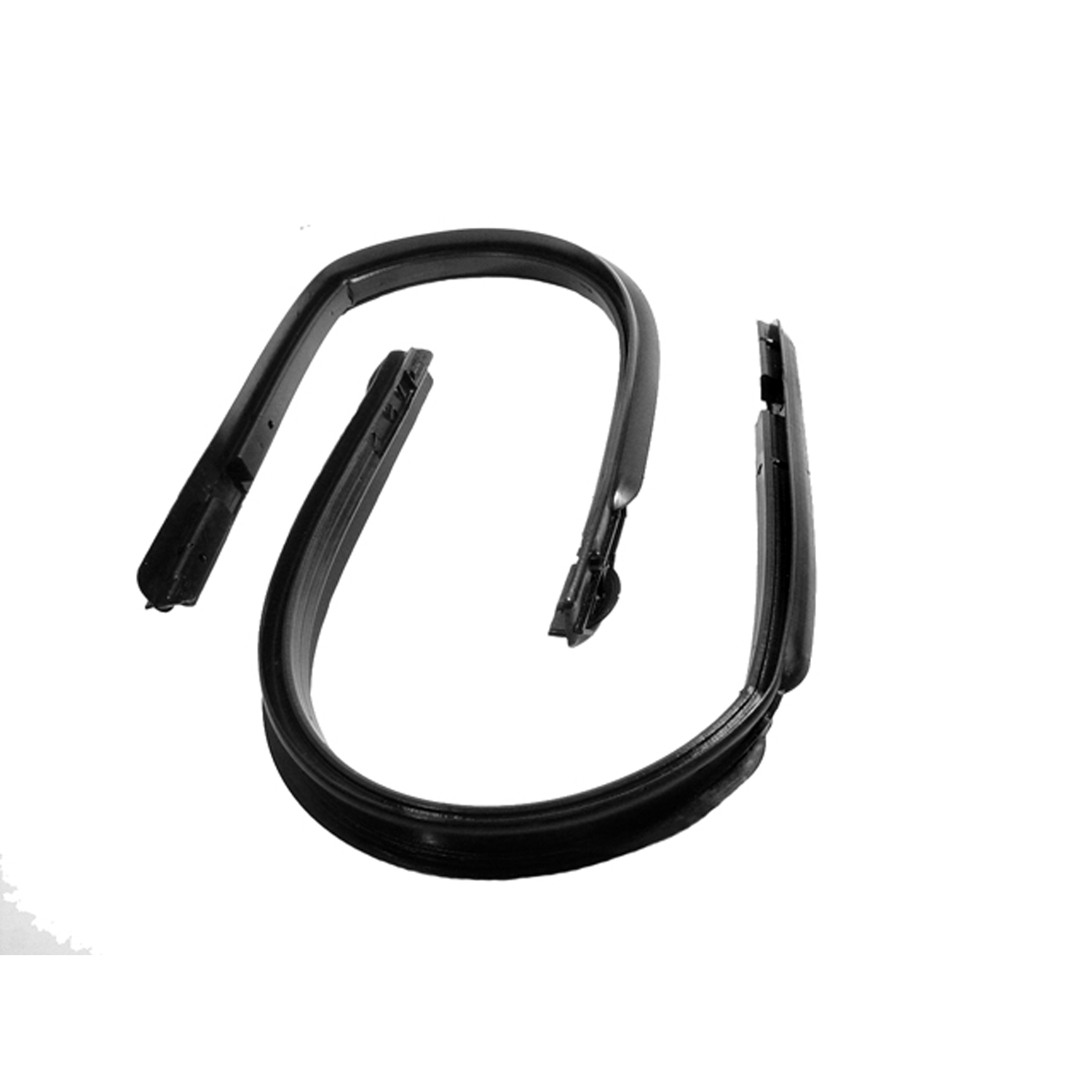 1947 Studebaker Taxi Front Vent Window Seals. 28-7/8" long each. Pair R&L-WR 9401Front Vent Window Seals. 28-7/8" long each. Pair R&L
1947 Studebaker Taxi Front Vent Window Seals. 28-7/8" long each. Pair R&L-WR 9401Front Vent Window Seals. 28-7/8" long each. Pair R&LWhy Choose Metro?
For over 100 years, Metro Moulded Parts has been the pinnacle of quality in classic car restoration parts. Our commitment to precision and authenticity in every component ensures a perfect fit and an OEM-level appearance.
- Expert Craftsmanship & Quality: Each part is a testament to our dedication to reliability and perfection, crafted from original designs and thoroughly tested.
- Advanced Technology: We use cutting-edge techniques to create flawless, long-lasting parts that surpass others in performance.
- SuperSoft Sponge – The Ultimate Door Seal: Not only are our door seals 30% softer than competitors', but they're also guaranteed to never leak. They effectively reduce wind and road noise, enhancing your classic car's comfort and driving experience.
- Proudly American: Our parts are a product of American craftsmanship, made in the USA with a spirit of excellence and heritage.
- Unrivaled Warranty: We back our products with a 30-year industry-leading warranty, a testament to our confidence in their quality.
Join us in preserving the legacy of classic cars with parts that are crafted for perfection, not just made.

